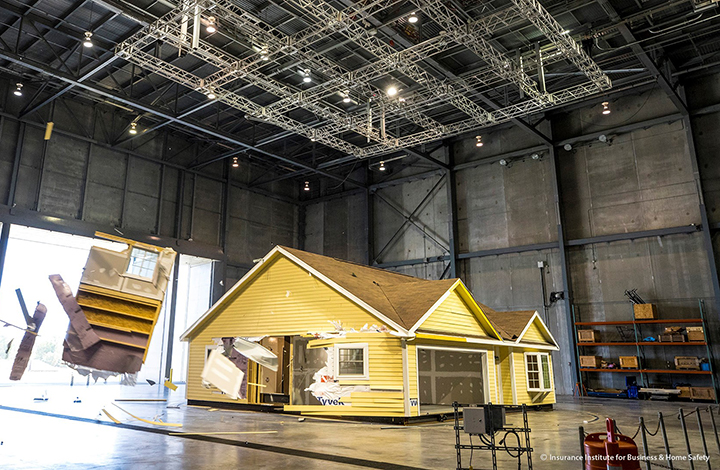Hurricane Season: Are You Ready?
Hurricane season is here, and Tropical Storm Arthur was an early reminder of how important it is to plan ahead. With many of us still hunkering down and limiting time away from home, there are many new dynamics to consider should a major hurricane develop while the need for social distancing continues.
The Insurance Institute for Business & Home Safety reminds homeowners it’s time to make sure your home is ready to face the season whether guidance from local health officials has you evacuating or sheltering in place.
Start with the roof. The roof is your first line of defense against weather. Look for loose, missing, or broken shingles. Consider having a roof inspection to make sure it’s is still in good shape. When it’s time to replace your roof, ask your roofer to follow the FORTIFIED Roof standard, which requires using more and stronger nails to keep the roof connected to the house; sealing the cracks in the roof decking to keep rain out even if your home faces a storm strong enough to blow some shingles off; and locking down the edges of the roof.
The FORTIFIED Roof technique is backed by two decades of research at the IBHS Research Center and has proven to be effective, protecting 99.5% of FORTIFIED homeowners in North Carolina from damaging water intrusion when Hurricane Dorian made landfall last year.
“Taking action now to plan for the season ahead gives you time to take those critical but affordable steps to prepare your home,” says Dr. Anne Cope, chief engineer at IBHS. “A strong, FORTIFIED Roof can be the difference in replacing a few shingles after a hurricane and spending weeks or months out of your house due to water damage.”
If it isn’t time to reroof just yet, there are other preparedness steps homeowners can take to reduce the chance of damage this hurricane season:
- Make sure your garage door is wind-rated. Look for a wind label on the door to know it has been tested to withstand the pressure of high winds. When a garage door fails, it can cause pressure to build inside the garage leading to significant structural damage to the surrounding walls or roof.
- Use silicone caulk to seal cracks and gaps around windows, doors, and even electrical boxes to keep water out of the home.
- Make a home inventory of your belongings in case a claim is needed. Be sure to use your phone to take pictures and video to more completely document the contents of your home.
“While no home should be considered hurricane-proof, these improvements have been found in both field and lab studies to make homes more durable in high winds and heavy rains,” adds Dr. Cope.
For more information on how to prepare for hurricane season, visit DisasterSafety.org/hurricaneready.
